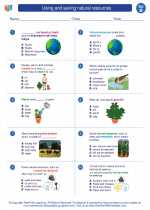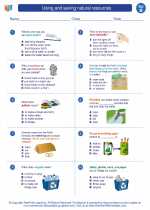Nutrients
Nutrients are substances that are essential for the growth, development, and maintenance of an organism. They provide the body with energy, support metabolism, and help maintain overall health. There are six main types of nutrients: carbohydrates, proteins, fats, vitamins, minerals, and water.
Carbohydrates
Carbohydrates are the body's main source of energy. They are found in foods like bread, pasta, rice, and fruits. Carbohydrates are broken down into glucose, which is used by the body for energy.
Proteins
Proteins are essential for growth and repair of body tissues. They are made up of amino acids, which are the building blocks of the body. Foods rich in protein include meat, fish, eggs, and dairy products.
Fats
Fats are important for energy storage, insulation, and protection of vital organs. They also help in the absorption of fat-soluble vitamins. Sources of fats include oils, butter, nuts, and avocados.
Vitamins
Vitamins are essential for various biochemical reactions in the body. They help in maintaining healthy skin, eyes, and organs, and support the immune system. Vitamins are found in fruits, vegetables, and fortified foods.
Minerals
Minerals are important for the formation of bones and teeth, regulation of body fluids, and muscle function. They are found in foods like dairy products, leafy greens, and nuts.
Water
Water is essential for all bodily functions. It helps with digestion, absorption, and transportation of nutrients, and regulates body temperature. It is important to drink an adequate amount of water every day.
Study Guide
- What are the six main types of nutrients?
- What is the function of carbohydrates in the body?
- Why are proteins important for the body?
- Give examples of foods rich in fats.
- How do vitamins support the body?
- What are some sources of minerals?
- Why is water important for the body?
[Nutrients] Related Worksheets and Study Guides:
.◂Science Worksheets and Study Guides Second Grade. Using and saving natural resources

 Worksheet/Answer key
Worksheet/Answer key
 Worksheet/Answer key
Worksheet/Answer key
 Worksheet/Answer key
Worksheet/Answer key
 Vocabulary/Answer key
Vocabulary/Answer key
 Vocabulary/Answer key
Vocabulary/Answer key
